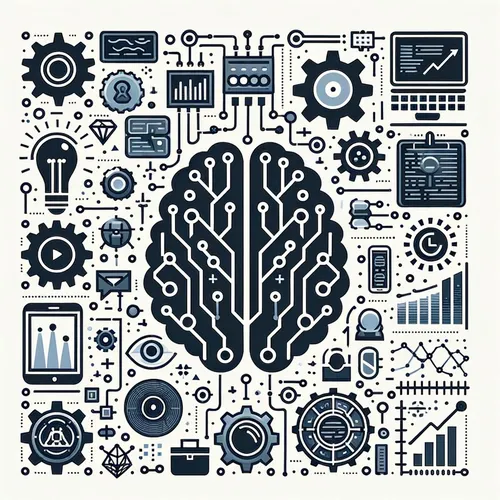AI's Explosive Growth: Trillion-Dollar Future or Risky Gamble?
- Author
- Quiet. Please
- Published
- Fri 29 Aug 2025
- Episode Link
- https://www.spreaker.com/episode/ai-s-explosive-growth-trillion-dollar-future-or-risky-gamble--67551120
This is you Applied AI Daily: Machine Learning & Business Applications podcast.
For business leaders, data scientists, and AI enthusiasts, today’s applied AI landscape is being defined by rapid advances in machine learning and integrated business solutions. According to the World Economic Forum, analytical thinking and AI-related skills are among the fastest-growing workforce demands for 2025 to 2030. Goldman Sachs forecasts that global AI investments will approach 200 billion dollars by the end of this year, a sign that organizations see clear value in operationalizing AI applications and giving their teams new technical tools.
In practice, machine learning is creating measurable impact in industries ranging from healthcare to financial services, manufacturing, and retail. IBM Watson Health, for instance, is pioneering personalized medicine by analyzing medical records with natural language processing to assist clinicians in disease diagnosis and treatment planning, resulting in higher efficiency and improved patient outcomes. In a recent clinical deployment, researchers cut misdiagnosis rates substantially and delivered more precise therapeutic recommendations. Meanwhile, Google DeepMind’s AlphaFold is transforming pharmaceutical research by predicting protein folding, unlocking faster drug discovery and deeper understanding of diseases in terms never before realized.
Manufacturing companies are leveraging AI platforms, such as Toyota’s machine learning solutions on Google Cloud, to empower factory workers and deploy predictive maintenance models, which minimize downtime and reduce costs. In banking, real-time fraud detection powered by models that analyze transaction patterns and flag anomalies is now standard practice, improving risk management and safeguarding customer trust. Neobanks like Albo and Covalto, as reported by Google Cloud, have streamlined their credit approval workflows using generative AI, slashing turnaround times by over 90 percent. Retailers, including global leaders like Coca‑Cola and Shopify, use AI-powered recommendation engines and computer vision tools to personalize marketing, forecast demand, and optimize their supply chains.
As adoption accelerates, the market is showing remarkable growth. Statista projects the machine learning sector to hit 113 billion dollars globally in 2025 and skyrocket to over 500 billion by 2030, while the natural language processing market could grow from 29 billion dollars in 2024 to 158 billion by 2032, and the computer vision market is estimated to reach roughly 29 billion this year. Industry integration is broad, with nearly three-quarters of companies now deploying AI and ML in some capacity, and North America leading with 85 percent adoption according to Radixweb.
However, successful implementation requires thoughtful planning. Business leaders must ensure clean, well-structured data and invest in scalable cloud infrastructure; 59 percent of practitioners now rely on Amazon Web Services for deployment. Integrating AI with legacy systems calls for robust APIs and disciplined project management. Security remains a challenge, driving the widespread adoption of AI-driven cybersecurity to identify and neutralize threats in real time.
For those considering machine learning initiatives, focus on predictive analytics to anticipate customer needs, use natural language processing for customer interaction and data mining, and explore computer vision for quality control and process automation. Start with business use cases tied to key performance metrics such as reduced operational costs, increased conversion rates, or better regulatory compliance.
Looking ahead, agentic AI systems capable of autonomous decision-making will become more mainstream, and explainable AI—now forecasted to reach nearly 25 billion dollars by 2030—will help enterprises gain trust and transparency in automated decisions....
